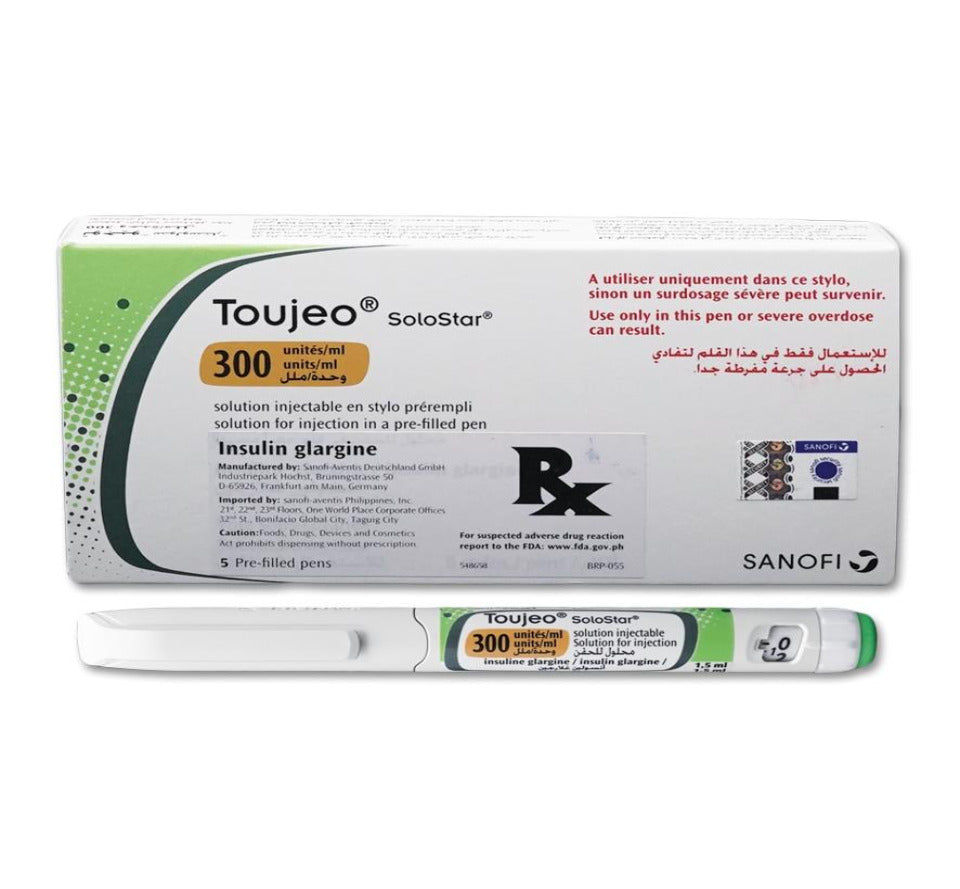Description
Description
SPECIFICATION
1.5ML
Generics
Insulin glargine
About
The primary activity of insulin glargine is the regulation of glucose metabolism. It inhibits hepatic glucose production and lowers blood glucose level by enhancing peripheral glucose uptake especially by skeletal muscle and fat. It also inhibits lipolysis in the adipocyte, inhibits proteolysis and enhances protein synthesis
Indication
Insulin Glargine is indicated for once daily subcutaneous administration for the treatment of: *Adult and Pediatric patients with Type I Diabetes Mellitus. *Adult patients with Type II Diabetes Mellitus who require basal (long-acting) insulin for the control of hyperglycemia.
Dosage
According to HBA 1c level
Side Effects
Very Common: Hypoglycemia is the most frequently occurring undesirable effect of insulin therapy that a patient with diabetes may suffer. Common: Lipohypertrophy, injection site reactions such as redness,pain, itching, swelling or inflammation. Uncommon: Lipoatrophy. Rare: Allergic reaction, visual impairment, retinopathy, edema (insulin may cause sodium retention and edema particularly if previously poor metabolic control is improved by intensified insulin therapy). Very Rare: Myalgia, dysgeusia.
Drug Interactions
Oral antidiabetic agents, angiotensin converting enzyme (ACE) inhibitors, disopyramide, fibrates, fluoxetine, monoamine oxidase (MAO) inhibitors, pentoxifylline, propoxyphene, salicylates and sulfonamide antibiotics , Drugs that may reduce the blood-glucose-lowering effect include corticosteroids, danazol, diazoxide, diuretics, glucagon, isoniazid, estrogens and progestogens, phenothiazine derivatives, somatropin, sympathomimetic agents (e.g., epinephrine, salbutamol, terbutaline), thyroid hormones, atypical antipsychotic medicinal products (e.g., clozapine and olanzapine) and protease inhibitors , Beta-blockers, clonidine, lithium salts or alcohol , Pentamidine , sympatholytic drugs such as betablockers, clonidine, guanethidine and reserpine.
When not to Use
Insulin Glargine must not be used in patients hypersensitive to insulin glargine or any of its excipients.
Precaution
Glucose monitoring is essential for all patients receiving insulin therapy. Changes to an insulin regimen should be made cautiously and only under medical supervision.

